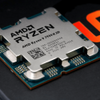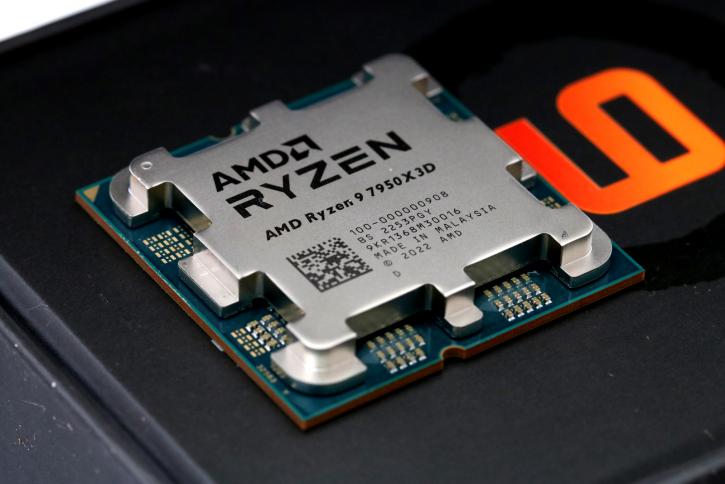Introduction
Ryzen 9 7950X3D processor review
16 Zen4 cores at an energy-efficient 120W TDP running beautifully with added gaming cache
AMD's much-anticipated Ryzen 9 7950X3D processor series has finally arrived, and we have reviewed it. The flagship Ryzen CPU is equipped with 16 cores and 32 threads, along with 64MB of 3D V-Cache. The X3D series was explicitly designed to close the gap between AMD and Intel's Raptor Lake processors. The added cache in the 7950X3D will undoubtedly benefit gaming workloads. At CES 2023, AMD announced the launch of three new Ryzen 7000 X3D models that will offer a nice blend of single-threaded and multi-threaded performance and increased game performance. These new processors come with a larger L3 cache size of +64MB and feature the manufacturer's own 3D V-Cache stacked atop a CPU chiplet and the cache found in the Ryzen 7000 CPUs. The three new Ryzen 7000 X3D models will feature 8, 12, and 16 cores. While the current Ryzen 7 5800X3D is still a top-tier option for gamers, the Ryzen 7000 X3D components benefit even more from 3D V-Cache due to the increased bandwidth, which will enhance performance in games and specific creation workloads and applications.
The suggested pricing of these processors is as follows:
- Ryzen 9 7950X3D for $699
- Ryzen 9 7900X3D for $599
- Ryzen 7 7800X3D for $449
Best of all, these parts will be available in the market very soon. The Ryzen 9 7950X3D and Ryzen 9 7900X3D processors will be on sale beginning today, February 28th, the Ryzen 7 7800X3D will be available on April 6th.
|
|
|||||||
| Processor | Core architecture | Cores Threads | Base / Turbo | L2 + L3 Cache | TDP | iGPU | Price |
| Ryzen 9 7950X3D | Zen 4 | 16/32 | 4.2/5.7 GHz | 16+64+64 MB | 120 W | yes | 699 USD |
| Ryzen 9 7950X | Zen 4 | 16/32 | 4.5/5.7 GHz | 16+64 MB | 170 W | yes | 699 USD |
| Ryzen 9 7900X3D | Zen 4 | 12/24 | 4.4/5.6 GHz | 12+64+64 MB | 120 W | yes | 599 USD |
| Ryzen 9 7900X | Zen 4 | 12/24 | 4.7/5.6 GHz | 12+64 MB | 170 W | yes | 549 USD |
| Ryzen 7 7800X3D | Zen 4 | 8/16 | 4.2/5.0 GHz | 8+32+64 MB | 120 W | yes | 449 USD |
| Ryzen 7 5800X3D | Zen 3 | 8/16 | 3.4/4.5 GHz | 4+32+64 MB | 105 W | yes | 449 USD |
| Ryzen 7 7700X | Zen 4 | 8/16 | 4.5/5.4 GHz | 8+32 MB | 105 W | yes | 399 USD |
| Ryzen 5 7600X | Zen 4 | 6/12 | 4.7/5.3 GHz | 6+32 MB | 105 W | yes | 299 USD |
As you can observe, AMD has specified the clock speeds of its Ryzen 7000-series desktop processors, with the Ryzen 9 7950X reaching up to 5.7 GHz, while the Ryzen 9 7900X3D can reach up to 5.6 GHz. The Ryzen 7 7800X3D has a maximum clock speed of 5.0 GHz, whereas the Ryzen 7 7700X can reach up to 5.4 GHz. The high turbo of the Ryzen 9 is due to the cache chip being carried by only one chiplet. All three X3D CPUs have a TDP of 120 watts, more than the Ryzen 7 7700X's 105 watts but less than the two existing Ryzen 9s' 170 watts out of the box. But let's head onward into the review; the processor was tested on an ASUS X670E Hero motherboard and paired with 32GB of DDR5 memory.


